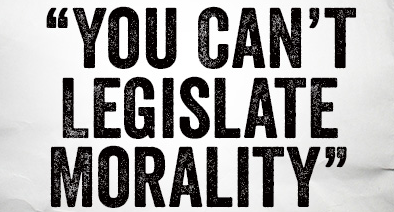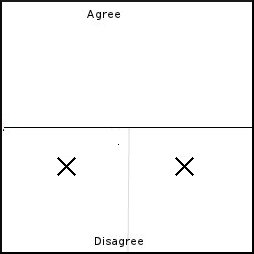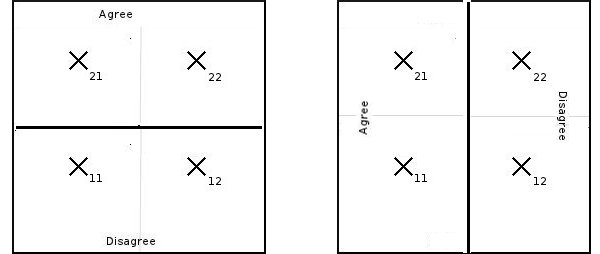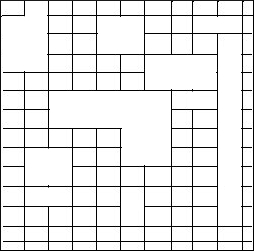In India, there are about 500 Newspapers, 160 TV News Channels and countless Online Social Media platforms. 90% of the news that comes out of them is ‘politics’. In fact, the word ‘News’ has become synonymous with ‘Politics’. Invariably, your headline would be either a scam or a scheme or an election result/analysis or some legislation or split in the alliance or coming together of an alliance etc. When was the last time you saw a Newspaper carrying a real achievement on it’s front page? Yes, once in a blue moon, when India does well in sports or when they successfully launch a rocket, they do find some space. But don’t we really have any achievements to show case on a regular basis or is ‘politics’ too important a thing to miss out?
With general elections coming up next year, this news is only going to get doubled-trebled. Much of the energy in the media will be spent on the analysis, discussing vote share, vote swing, caste break-down, minority votes, majority votes, exit polls etc. On the ground, the activity will be even more frantic with political party’s campaigns, rallies, road-shows etc. On the other hand, Election Commission will be busy deploying its machinery and organizing it to make sure every voter gets to exercise his vote. Not to mention the scale- around 70 crore(700 million) voters. All this to elect a Government. So much of energy is spent, but the real question to be asked is, ‘how important is it to go through this grind over and again?’
I have been following politics since I was 12 and tracked every election since then. Every time there is an election, it brings a lot of excitement and hope that something new would come up, which would change the old order. The terminology media uses – ‘vibrant democracy’, ‘world’s largest democracy’ etc adds to the excitement and makes you feel proud of this unique phenomenon. But,once the elections are done the enthusiasm would fizzle out very quickly. And in less than a couple of months time, when you see the same old politics being played out, you go back to the pessimistic view that you always held ‘nothing ever changes in this country’. Why is this repeating every time? Where is the flaw? I think it’s time we got back to the basics.
We have accepted Govt. as a norm and inherited Constitution without questioning it. Since the root of all this is government, let us now ask: Why do we need a Government? How did it come into existence? If it is really needed? If yes, what is it’s exact role?
Let us assume a small building with ten odd apartments, which works without an association or a president. At some level this can work. There are unwritten rules that exists which directs inmates to park their vehicles in the allotted space, to not pollute the environment of the place, limit their TV volume and many such things. Now, the conflict arises, if someone does something irrational. Like dumping their garbage in front of neighbour’s door or unfair use of elevator etc. This creates insecurities among people and then a wise man would suggest everyone to come together for peaceful co-existence, makes a coherent set of rules with the consent of everyone rational, and chooses someone to safeguard these rules, then the rules become the constitution and the one who upholds it becomes their government. It is this government that decides what is illegitimate in that apartment based on the constitution.
Let me try to trace the evolution of government in the society. Since anarchy was the default setting, what could have made the early man go look for an authority? My estimation is, there would have been instances of people initiating force on others, which naturally would result in an insecure environment. So, to get a sense of security and predicitbility to their living they needed some authority. And I estimate that the concept of ‘God’ could have taken birth here. Inorder to bring some order to the system, may be a few wise men would have come together and popularized the theme that there was some higher authority that was watching their behaviour. Then they might have defined behavior that Gods would approve…which today might be your holy books. Since people need motivation to behave in a certain way, they might have created the concept of hell and heaven. The concept of God as the invisible eye watching from the skies above was needed, because people would commit crimes away from the public glare and try to get away(as you didn’t have cctvs or any such technologies back then). Once you placed God at the top, he has a clear view of all the things happening on the earth. And over a period of time they might have realized that they needed to punish people for their misdeeds here on the earth rather than leave it to hell…hence the concept of king came into existence. King as someone who acts on the word of god. That was why you always had king-church association, and later when people got more empowered they instituted democratic governments. In short, Gods became kings and kings gave away to governments.
Rights
So it is fairly clear that Govts. came into existence to see that there are no conflicts. A conflict arises when someone infringes on others rights. So, in effect, to protect rights we are instituting govts. Now what are these rights? When someone initiates a force on you, why is it wrong and who decides that? Before communists distorted the concept of ‘rights’, the western philosophers had recognized three basic rights. Right to life, liberty and property for every individual. These were considered by some as God given and by some as natural. But neither can be really used to to put up a strong case for the concept of rights; except may be to show a proof that this concept worked in the western world, and basically the reason for its progress compared to the rest of the world. Ayn Rand was the one who really gave a rational explanation to these rights. She says “Rights are conditions of existence required by man’s nature for his proper survival. If man is to live on earth, it is right for him to use his mind, it is right to act on his own free judgment, it is right to work for his values and to keep the product of his work.” Let us examine. Man’s mind is his basic tool of survival. Just like claws and teeth for a tiger. Now, if one’s standard of moral value is man’s life, and acting in contradiction is immoral, man should be able to use his mind, anything that stops him from doing so becomes an evil and anti-life. Remove claws and teeth of a tiger and it can’t survive. Now what is that stops man from acting on his own free judgement? Physical Force/Coercion. If you put a gun to my head, I can’t act on my own free will..that is how one deduce that ‘liberty’ is a right. Since man acts on his free judgement to sustain his life, it is his right to keep the product of his actions. Hence property becomes a right. If a man is living alone in a desert island, these rights would be implicit, but because we are living in a social context these rights should be identified and recognized, and govts are instituted to uphold these rights. And one should objectively arrive at laws based on these rights. These rights are not subject to vote; they are absolute. Now the question arises..what if people don’t subscribe to this concept? What if someone doesn’t subscribe to the concept of gravity and jumps off the building?..If the standard is man’s life and the goal is for the survival of ‘man qua man’, everyone should submit to these rights for peaceful co-existence. There is simply no other way a society can exist.
Now, this brings us to the question of why do we need a society?
Imagine everyone living in one’s own deserted island. One has to produce things that are needed for his survival all by himself. Compare that to a day in life of an individual in a society. From the dress he wears, food he eats, gadgets, vehicles, movies etc…As Frederic Bastiat puts it “even the humblest, obtains in one day more satisfactions(in a society) than he could produce for himself in several centuries”…What makes this even more interesting is that he didn’t rob anyone..he paid for all the services he had received. Hence the purpose of coming together and living in a social context is – division of labor, sharing of knowledge and when we specialize, we become vastly more productive than when we produce everything ourselves. The only threat in a social context is to man’s rights, which were implicit in his island…That threat is in the form of initiation of force..so by coming together to take advantage of the benefits of living in a society, man, by default has agreed to the non-aggression principle and that he only involves in a value-for-value transaction. Living in a social context makes supporting one’s life a lot easier, but as Ayn Rand puts it “Living in a society, instead of on a desert island, does not relieve a man of the responsibility of supporting his own life.”
Govts. Role
Now that we have identified individual rights, we need a framework and a body to uphold them like we did in the case of our apartment example. Since ‘force’ is what disturbs the social co-existence, we need to frame objective laws to take retaliatory measures on those who initiate it. Hence an institution is needed to identify and punish the aggressor as per the already laid objective code of rules. To put it in Miss Rand’s words “This is the task of a government—of a proper government—its basic task, its only moral justification and the reason why men do need a government.” . Govt is a tool to take the force out of the system..so that men can go about their business peacefully.
Generally, Govts are seen as either servants or masters. In my observation, a real govt is neither, but a referee. Here we need to make a distinction : Govts are not there to protect you(every moment), but only to recognize and uphold your rights. The difference is, Govt. recognizes your right to property,makes robbery a punishable crime and punishes the criminal, but locking ones house is the job of the individual. Just like in sport where player brings in his own protective gear and umpire’s job is to penalize rule violation, but not to prevent it…he can never. People rally on streets and demand the government to protect them, really they should be demanding Govt to let them be free to protect themselves.
Legitimate Govt.
So, in short, Govt. should have the monopoly on ‘retaliatory use of force’. To exercise this, it needs judiciary and the police.Just like an individual needs to protect himself, a country too should be able to protect it’s land – thus military becomes a legitimate function. These and only these are the legitimate functions of a Govt. People also call this form of set-up ‘Limited Govt’ but I prefer to call it a legitimate govt. Now, the big question is – who pays for it? I will deal with this in the last section where I will try to answer anarchists.
Socialist Govt.
Almost all the Govts in the world today are socialist….they may vary in the methods and degrees, but the goal is always the greater good of the society. Govts intervene in every aspect of human life to achieve this goal. Let us see why, this, seemingly beautiful concept of greater good is such an evil. Recently, in India, there was a debate about the food security bill which the govt. was planning to enact. It is supposed to benefit 75% of the people – this is what they call ‘greater good’. Not even one political party opposed it in principle…they merely had difference of opinion in the implementation, but no one questioned the morality/legitimacy of such a concept. Now, lets imagine this scenario – there are 5 people of which 4 have different organ defects and one is perfectly healthy…socialism permits you to kill the healthy person and yank out required organs from him and donate them to those in need…because the concept of “welfare” only sees how many people are getting benefited, but not “at whose cost”. Sacrificing the individual for some greater welfare of the society is socialism. If you want to understand how it translates- just imagine, tomorrow, your building president storms your apartment, demands you to produce your bank statement, and then forces you to pay maintenance bill in proportion to your income.. – how does that make you feel? Isn’t that what’s happening in the name of income tax? The moral concept of “individual rights” has no place under these Govts. How does it feel when the umpire intervenes and restricts a player from performing to the best of his potential in the name of ‘inclusive growth’ ? Even those who oppose socialism, oppose, because they say it doesn’t work. The problem with this argument is,what are you trying to achieve to say whether it works or not? The right question to ask is, whether it is moral or not? and it is immoral as it denies individual rights. As a result threat to the existence of the individual. And the point to note is, India is a self-proclaimed socialist govt.
Anarcho-capitalism
Anarcho-capitalism is a political ideology which advocates the elimination of the state; law enforcement, courts, and all other security services would be provided by privately funded competitors rather than through taxation. In short, they believe that justice can be bought in the market. They see this as a step further to the limited govt which the likes of Ayn Rand proposed. Let’s see what’s wrong with this.
The basic flaw with this system is, it assumes markets as a given. But the reality is, we cannot have markets without taking the force out of the system. Market is a concept based on value for value transaction, and force is not a value. It is anti-mind and it’s presence nullifies any real value. Govt is that tool, which helps to extracts force out of the system(as seen above). Free-market justice means, there would be multiple law enforcing agencies..which indirectly means selling force as a value in the market, which destroys the premise on which capitalism stands. If I buy all the oil in the world, people can still explore other forms of energy and that is the essence of capitalism. Capitalism doesn’t say you can’t monopolize a resource, all it says is, even if one does, you are free to come up with alternative ideas and market them. But, if I buy all the force(law enforcing agencies) that is available in the market and exert it on the fellow beings – can they innovate? Force is anti-thought, so you can do nothing but simply surrender. And to think of it, what exists today could be your Anarcho-capitalism with an agency called ‘government’ holding the monopoly on force. Can you now establish an alternative to compete with that?
You can however buy protection for defense purpose, but not force to initiate or retaliate. Here a distinction has to be made between ‘defense’ and ‘retaliation’. When there is an immediate threat to your rights and recourse to the govt is not available, you can use force to defend your life or property. But, once the act of right violation has been committed, to make the violator pay for it, a retaliatory force is necessary. We delegate this job to the govt for the purpose of an orderly, objective, legally defined enforcement.
Ethics determine how people should treat one another in a society, based on that Politics prepares the ground for Markets/Economics to thrive. That political ground here is rule of law and its enforcement. You can’t put the ground for sale. As a friend put it, ‘Competing law enforcers means competing law creators, which means competing sets of rights. With “free market justice”, rights would be open to being bought by the dollar. That is not justice, nor is it right’. For a produced good to be translated into value/money, you first need to have a claim(a right) on it and then should be free(a right) to sell it. So clearly rights precede market and cannot be brought in the market, for there can be no market without rights. Based on ‘rights’ you formulate ‘law’ and based on ‘law’ you deliver ‘justice’. As discussed above, the sole legitimate purpose of the government is to recognize these rights and uphold them. When you don’t have a common law, a killer service and a police service will have the same legitimacy..infact the word legitimacy wouldn’t be applicable in such a society.
Hence anarcho-capitalism is simply a sophisticated term for ‘anarchy’. Which actually could work if everyone in the society were rational. But reason is not an automatic function for man. It is a matter of volitional choice. As ayn rand puts it.
“Man has been called a rational being, but rationality is a matter of choice. Man has to be man—by choice; he has to hold his life as a value—by choice; he has to learn to sustain it—by choice; he has to discover the values it requires and practice his virtues—by choice.”
Now the big question anarchists pose is – who funds this govt? as taxation violates right to property. Lets see. Majority of the people who pay taxes today, see it as a moral duty – only a few who deplore socialist policies of the govt see it as looting. Though the latter part is raising for good, the point I’m trying to make is, if they are already paying so much for the welfare of others as a moral obligation, they will have no problem donating for their own self-interest. Yes, government will run on donations, and if you are wondering if this can work..you might have to look at the kinda donations that pour into private charities, churches, temples etc…surely, when people see the merit in securing their own rights, they will donate voluntarily.
What if no one donates? what if no one agrees to delegate their right to retaliate to the government? Well, if the vast majority doesn’t want to be persuaded by reason and are too irrational to see that such a system is required in their own self-interest – then it is better to give up on the idea of society and retreat to our own respective islands.
Another question is, what if only a few donate and as a result try to take control of the government…a legitimate question..since this is how Govts are run today. The reason for this situation is that the laws are not objectively defined..they are open for interpretation..as a result, it can be easily influenced by money. For example, Constitution grants us free speech with reasonable restrictions. Reasonable is a subjective term and can be interpreted in any way the enforcer wishes to. When the law is absolute and everyone is aware of it, this cannot happen. This can be clearly seen in sport. In cricket, when the batsman gets bowled, no matter who the batsman is, whether he belongs to the richest cricket board or the poorest, whether he is a debutant or a guy with 100 100s…he has to go. When the law is subjective, those in charge of the enforcement can derive extra powers and it multiplies. But as you see in sport, where rules are mostly objective, umpires can’t dictate what the players do..their role is limited to penalizing rule violation.
In kings we had individuals dictating people…then people revolted and brought in socialist governments..which resulted in mobs dictating individuals…Now is the time we let individuals dictate their own lives.
I will end this with a quote that sums up today’s government.
“Government is that great fiction, through which everybody endeavors to live at the expense of everybody else” – Frederick bastiat.






